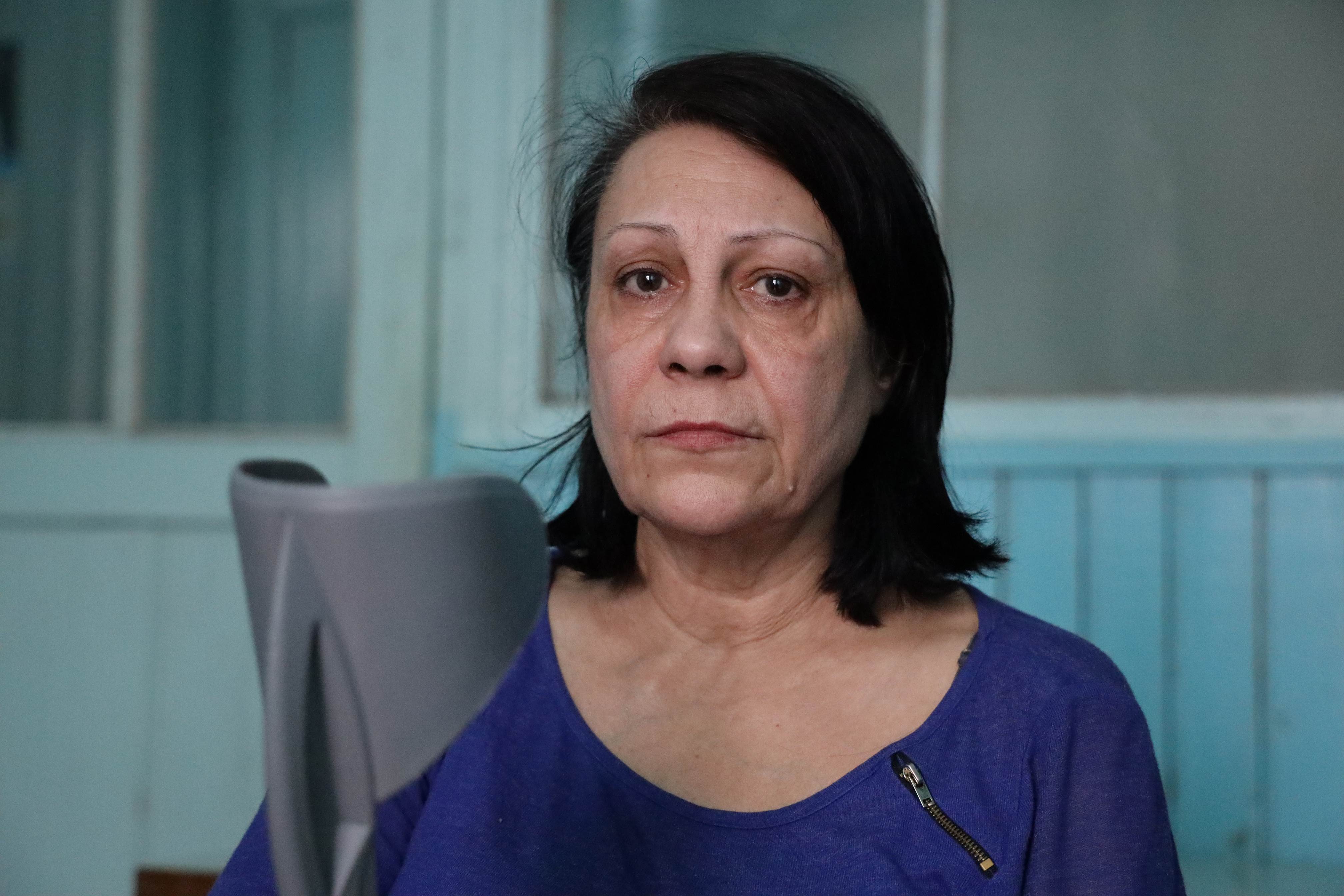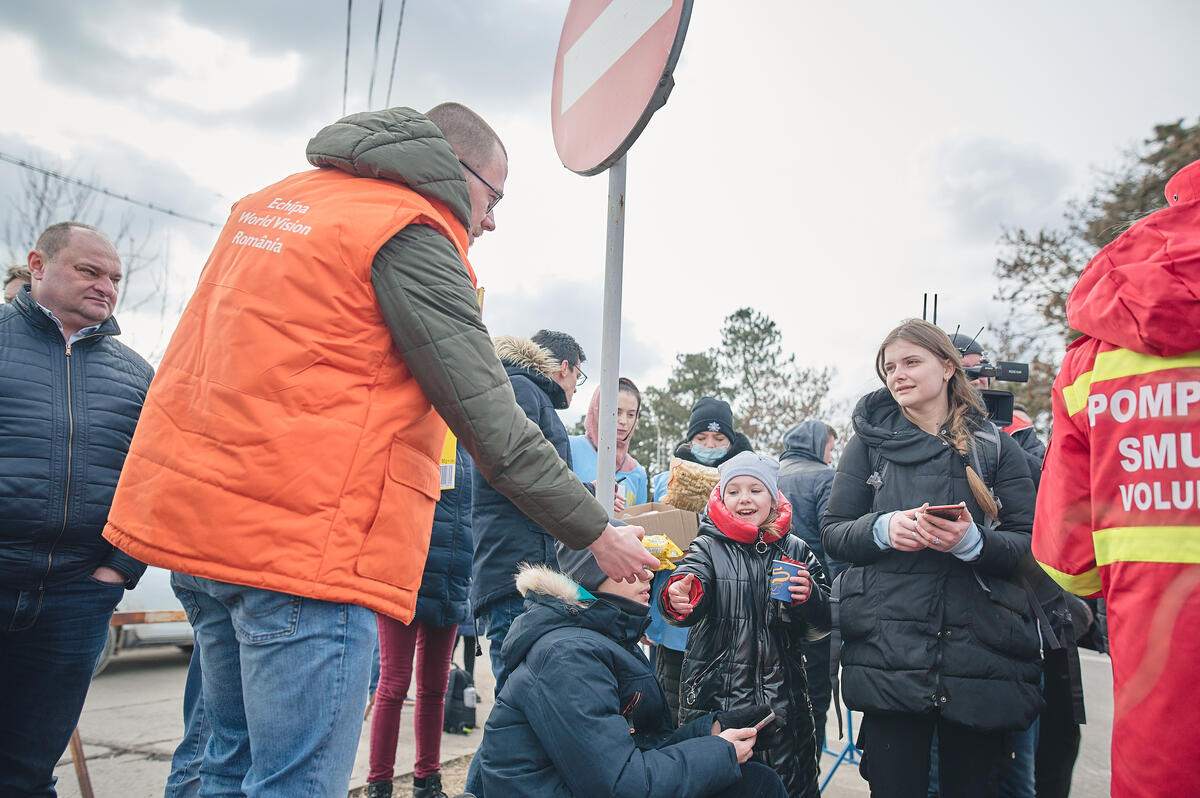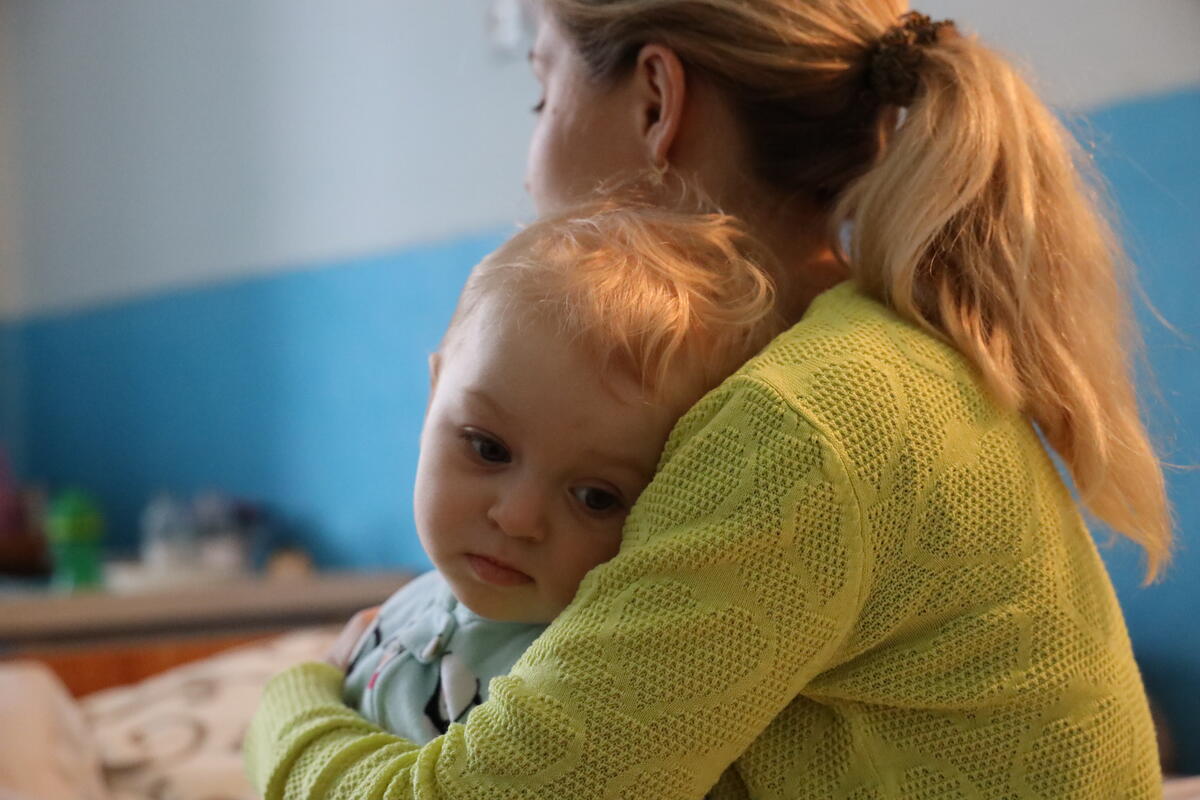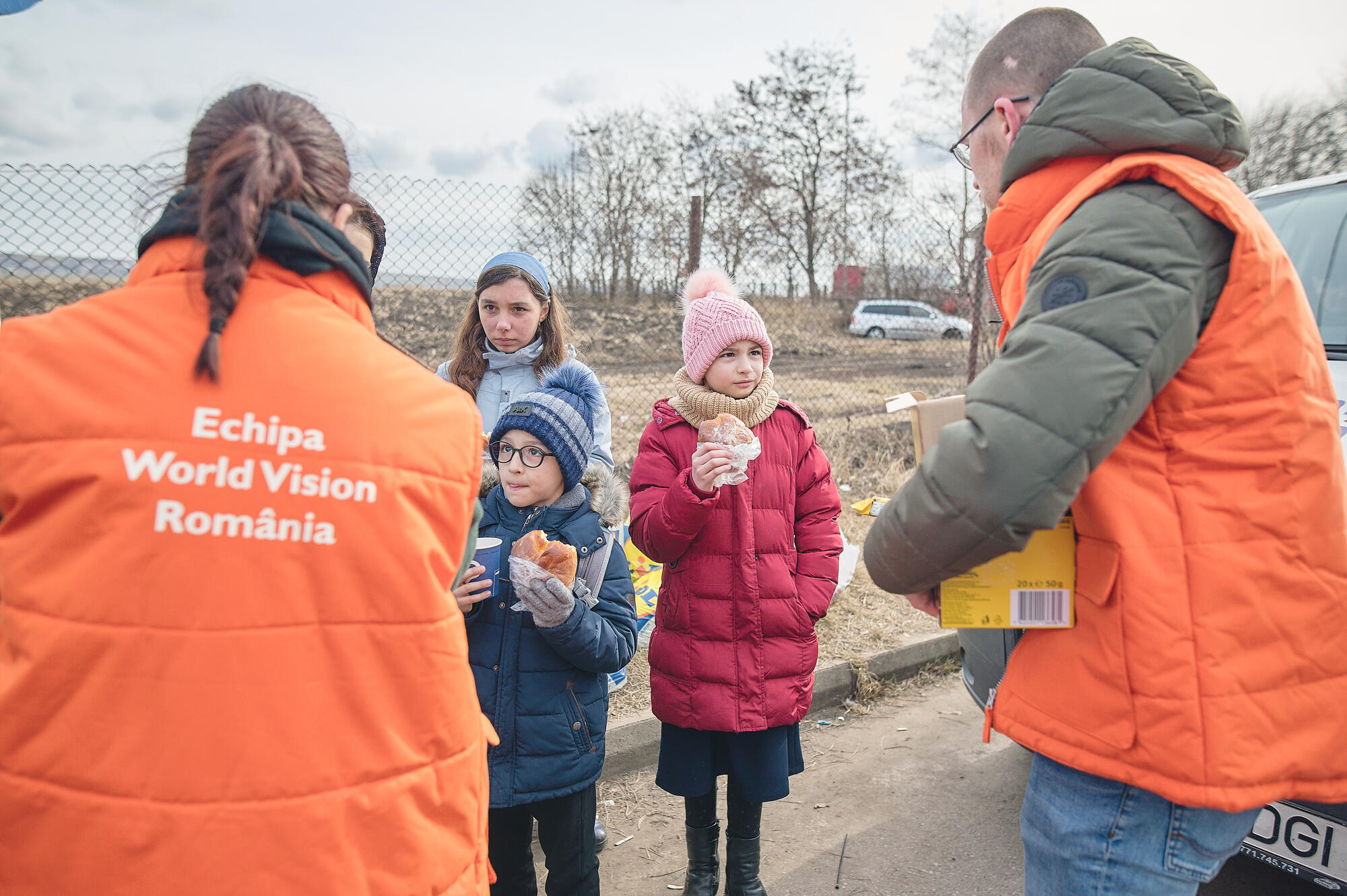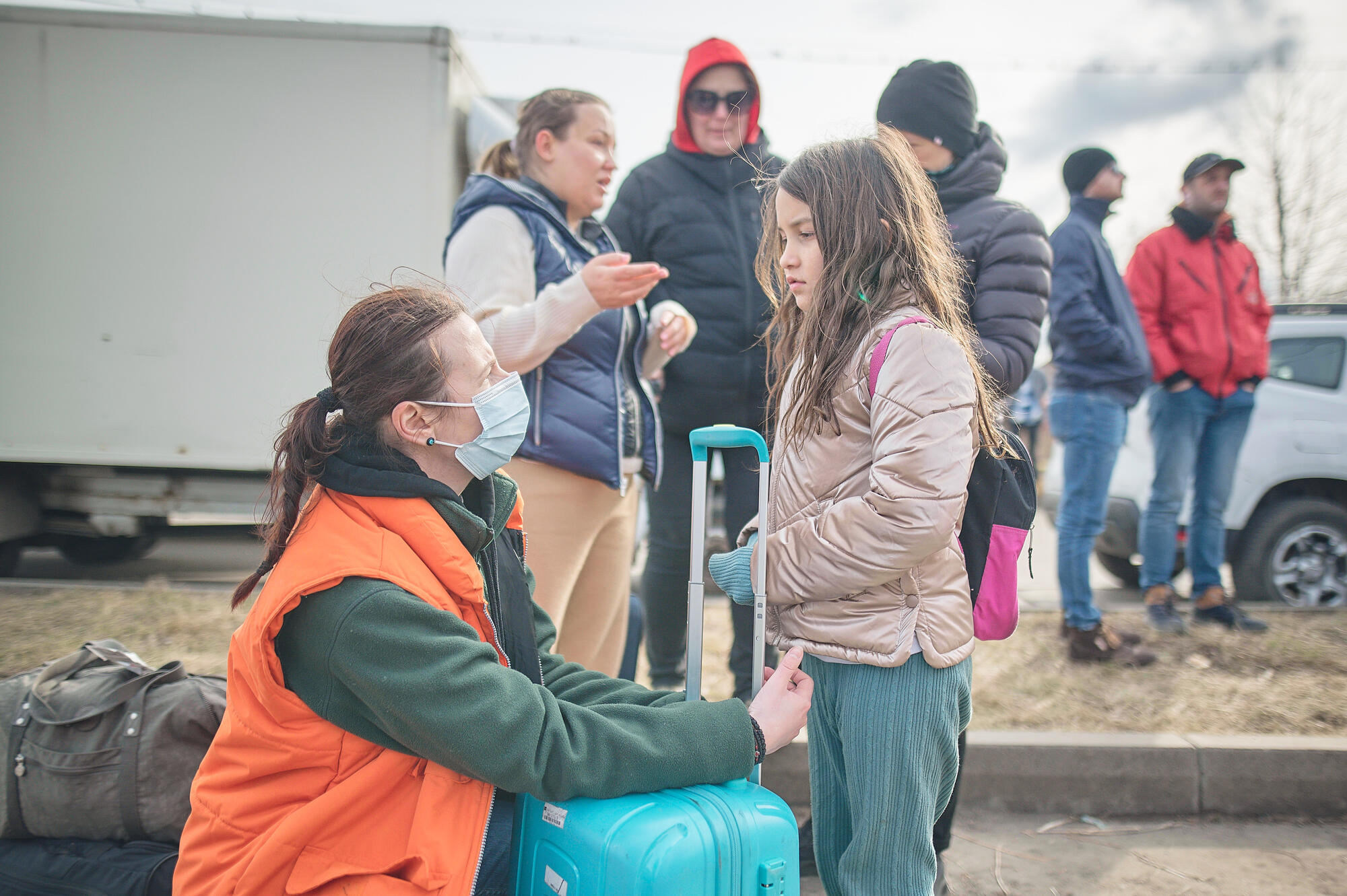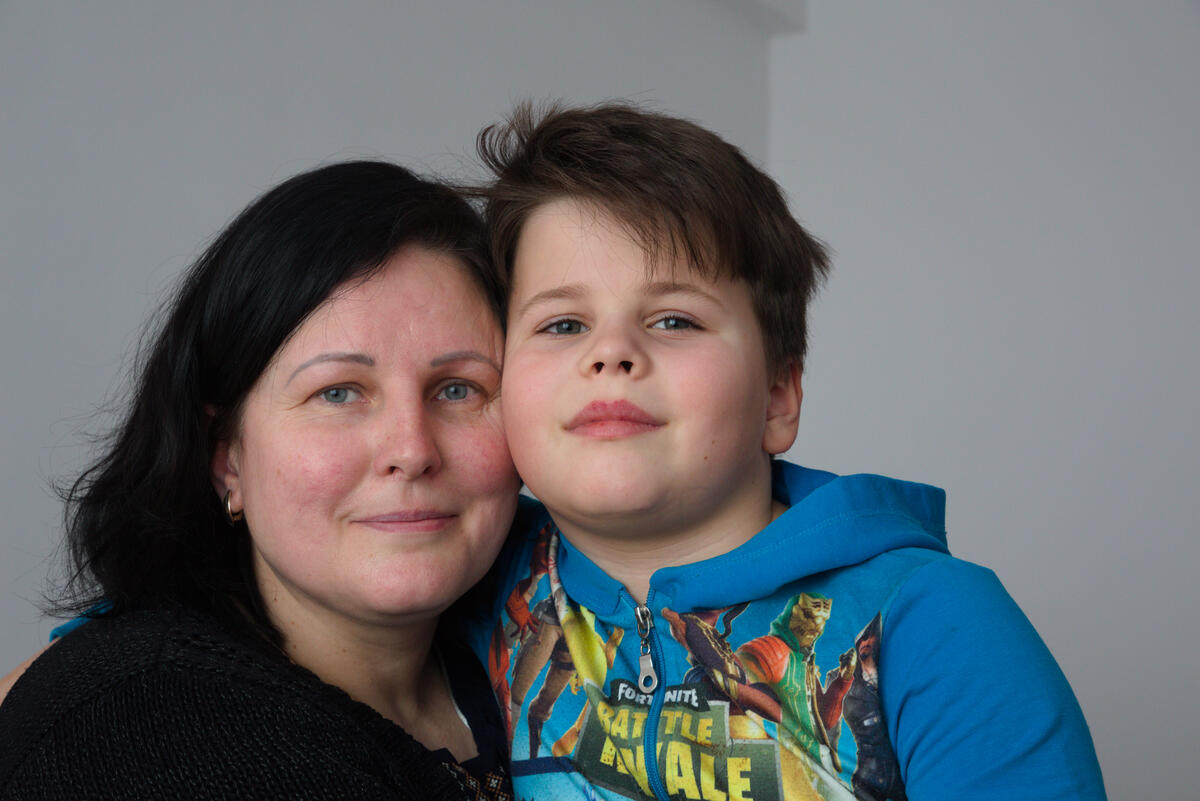
Julia and her son David take shelter in Romania
Ukraine Conflict
At 6.55 am, in a flat in suburban Kyiv, Julia shakes son David awake. They must be on the road by 7 am. This way, she figures, there will be little time for messy explanations about their departure, no time for “hysterics".
Julia does not want to leave Ukraine, but the bombs have been falling too close to their home for five days now. The time has come, she decides.
In the swirl of decisions about what to take, Julia packed a large folder of family photos – a thick handful of black-and-white snaps of Soviet-era school camps, family picnics and winter holidays.
“We didn’t have much time to pack. But I knew I had to take the photos. It might be all I have left,” she said.

Among them is a picture of her with husband Leonid. Apart from the fact adult males must stay behind in Ukraine, Leonid is suffering from chronic kidney failure and cannot be away from daily dialysis.
With the help of a local church, Julia, 44, and David, eight, boarded a small bus with around 25 people headed for the southern Ukraine city of Chernivtsi.
With every spare room in the city taken up by other families from Ukraine fleeing the frontlines, Julia decided to keep moving south across the Romanian border.

At Bucharest’s railway station, a policewoman spied a dazed-looking Julia wandering around the station in tears, and arranged for her to go to a women’s refuge in the inner suburbs of Bucharest which has given over 40 of its 100 rooms to Ukraine refugees, and which is being supported by World Vision.
“I just can’t believe how generous people have been. It’s hard to understand why people want to help us … I find it so hard to receive help,” she says.
Like so many who have fled Ukraine, Julia is happy, in the first instance, to be safe. David is happy enough, playing with a new-found Romanian friend in the shelter and whiling away his time on Roblox and YouTube. But thoughts of the future are never far away.

“I never planned to come to Romania, but here I am – kind of a homeless person. We have a roof over our head, we have a shower, we have food, but I have no idea how long I will be here, or how long I can be here, if or when we can ever return to Ukraine.”
And yet amid it all, the trauma, upheaval and the weight of uncertainty, Julia can still muster gratitude.
“You know, I think for me some day, my war will be over. But my heart goes out to these women (victims of domestic violence) – their war just goes on.”

